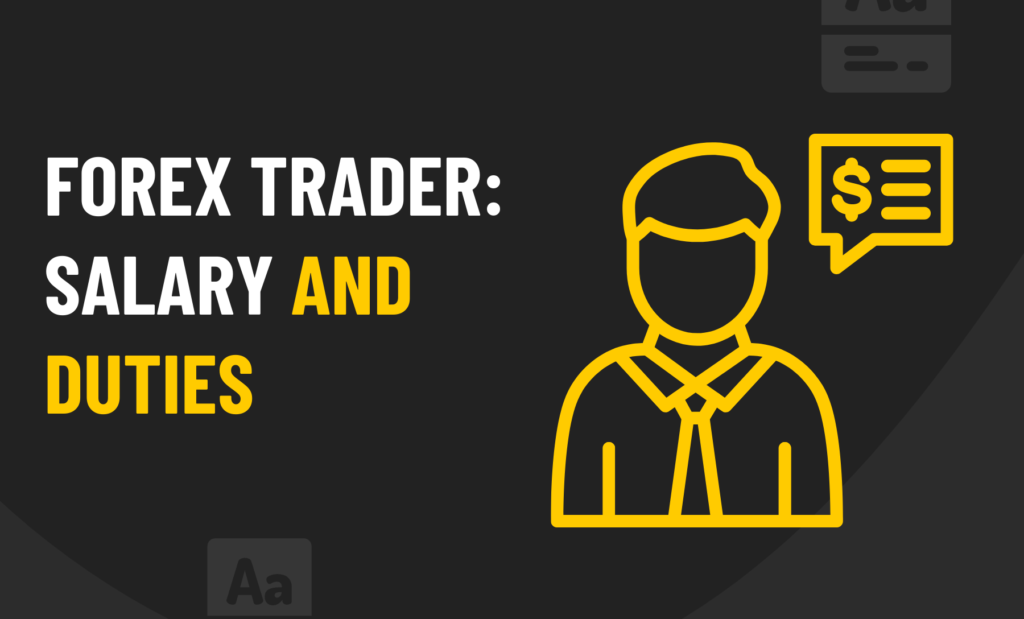Table of Contents
What Does a Forex Trader Do?
A Forex trader is a person who tries to take advantage of the currency movements on the money market by analyzing movements and patterns in an attempt to make a profit. This person is a type of investor that often operates at higher risk than some other investors. This is because there is a potential for higher gains, and with any investment, the risk of higher gains comes and equal risk of high failure.

Photo Credit: World Finance
How to Become a Forex Trader?
Becoming a Forex trader is a reasonably simple process. As a Forex trader, you can trade solo or pair-up with a brokerage. To work with a brokerage, it is likely they will want you to have a degree related to finance and investing or economics. On top of a degree, it will also be preferred that you also have personal experience as a trader.
Starting a personal career as a Forex trader begins with picking where you will want to trade. This will be either with an exchange regulated by either the Commodities Futures Trading Commission or another entity similar to the U.S. Securities and Exchanges Commission. There is also the option of trading in the off-market exchange as well.
After this is chosen, a brokerage account can be chosen from a variety of resources. Doing so ensures that all trades done are legal and regulated. At this point, you should do plenty of research in the brokerage, software to use, and potential algorithms to purchase and add to your tools stack.
From here, you can begin making trades based on the style you desire and begin making a profit on trades.
How Much is a Forex Trader’s Salary?
The “best” way to make a salary as a Forex trader is to pair with a firm and help run accounts. Although, running your account can bring in a decent salary from year to year on the side.
A Forex trader’s salary will vary greatly depending on the exact position and country where the job is based. Many hired traders may be able to work remotely for other brokerages as long as they legally can work in another country.
Forex traders typically come in three different tiers, with tier one being the least experienced of the three levels. For these three levels, a salary as a successful trader can range anywhere from $75,000 to $180,000+ in the US. These are some significant variances, but you must remember this completely depends on the trades being done, how many clients are managed, experience level and any extra credentials that can be added. In the UK, working at a brokerage brings in an average of £35,787 for a Forex trader’s salary.
While thinking about just a Forex trader is just the tip of the iceberg as far as industry positions go, it is beneficial to look at other potential positions and salaries within the world of Forex as well.
Some other potentially high earning positions include Forex exchange managers and executives. As an executive or manager, this means there is potential to earn much more as in the tier system of a brokerage. These fall above the different traders at levels one, two and three. Their salaries can easily range from $120,000 on the low end and upwards to and past $210,000. Again that is by the standard in the United States, so for the United Kingdom, there is more of an average of £193,523.
Possible Job Duties of Traders
Before you look at those numbers in terms of Forex trader salary and want to jump ship from your current job to a Forex job, be sure you have the experience and know what you will be potentially doing.
Any of the tier three traders may be responsible for buying and selling currency pairs as they are requested and may also recommend competitive foreign exchange rates based on market performance. A trader also needs to know how to review orders to ensure accuracy and follow regulations. Carries out trades and maintains the organization’s accounts. These traders will also typically report to the manager because of how they fall in the command line.
A Forex exchange manager or executive will manage all traders and overall accounts as well. Managers and executives have nearly the same duties as the above traders but may work with higher value and potentially international accounts.




